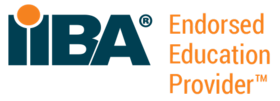» This course is part of our five-day Mastering Business Analysis - Remastered course which usually runs in parallel, so you can choose to undertake these two days or the full five days.
By mastering the project requirements process, business analysts and project managers can better manage customers’ expectations and satisfy their needs. Requirements discovery is the first step to a successful project.
This course focuses on the skills necessary to thoroughly gather requirements from stakeholders, procedures, system components, and various business documents. Quality requirements statements are the next step in a successful project. This course provides the best practices to write specific, measurable, achievable, realistic, and traceable (SMART) requirements statements.
Finally, requirements must be properly communicated, validated and signed off to achieve a successful project outcome. By the end of this course, participants will have accomplished all three. Overall the course is designed to give participants the skills, hands-on application and confidence they need to tackle any project by producing and gaining approval for a quality requirements document.
This course is consistent with definitions and principles from the IIBA’s Guide to the Business Analysis Body of Knowledge (BABOK® Guide).

